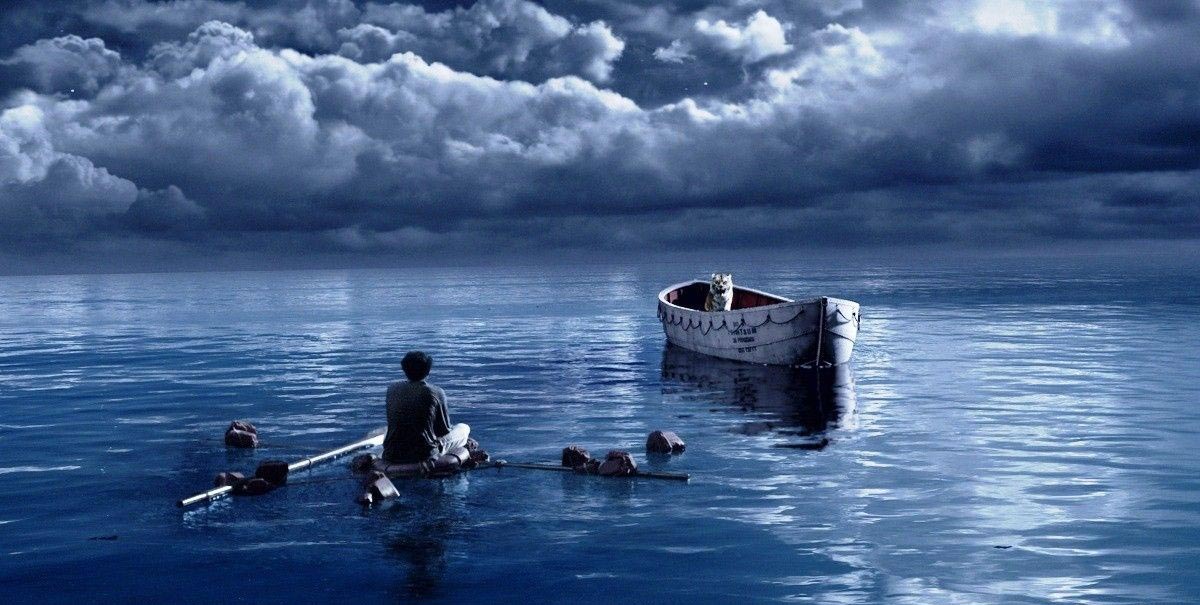My copy of Life of Pi has collected dust for several years, so I dutifully re-read it in anticipation of the film. I was surprised at how deeply - and naturally - the book deals with a holistic faith life. Yann Martel has claimed that, until he wrote this book as a sort of Hail Mary pass for his writing career, he called himself a secular agnostic, that is, someone who is not particularly interested in the existence of God, but who can generally see both sides of the argument for God's existence. After researching the book using the holy texts of various religions he had a breakthrough in which he understood that the world's religions were best in unison, not in division.
As Pi Patel says in Chapter 25, "To me, religion is about our dignity, not our depravity."
There are always those who take it upon themselves to defend God, as if Ultimate Reality, as if the sustaining frame of existence, were something weak and helpless.... These people fail to realize that it is on the inside that God must be defended, not on the outside.
This point is key to the future of religious tolerance. Inter-religious dialogue - all dialogue - is rooted in the idea that we have more in common than separates us. Life of Pi reminds us that reality is much bigger than our ability to describe it, and that we should expect to be surprised. Pi Patel sees no problem in using every available brush to paint God, so he engages in Hindu, Muslim, and Christian rituals while safe in India, and calls to God in various languages while suffering in the Pacific. Martel comfortably employs the language of several religious philosophies.
 |
| Reality is not as fun. |
Because any time we talk about God we tell stories like Yann Martel, or else we give the factual analysis that Pi finally surrenders to the Japanese interviewers.
Will Ang Lee's film deal with any of this? Unlikely. But since the book is about storytelling, we should feel deeply satisfied if the film carries us for a few hours. The previews promise at least that.


No comments:
Post a Comment